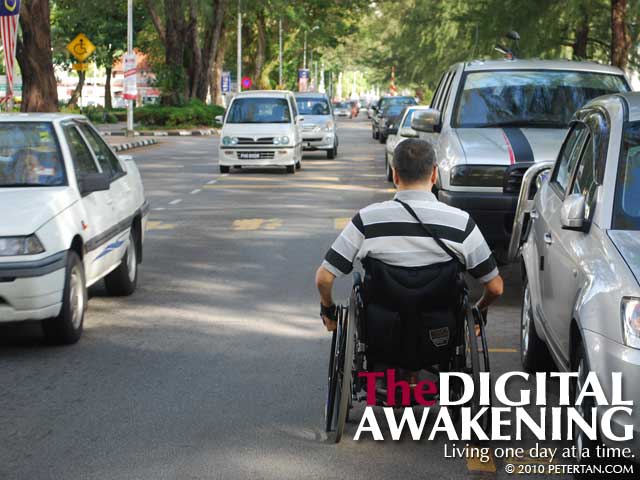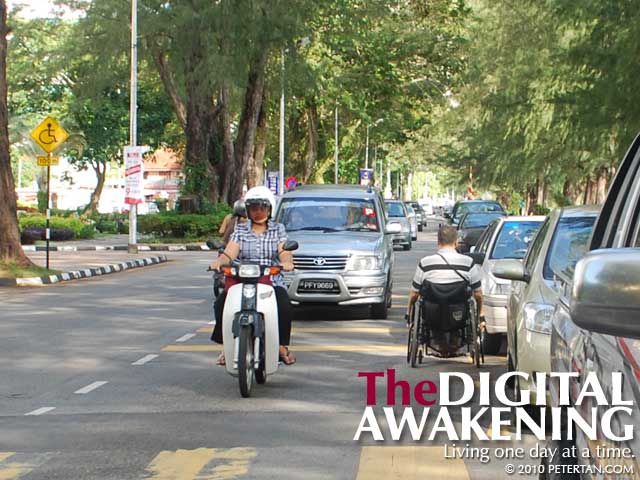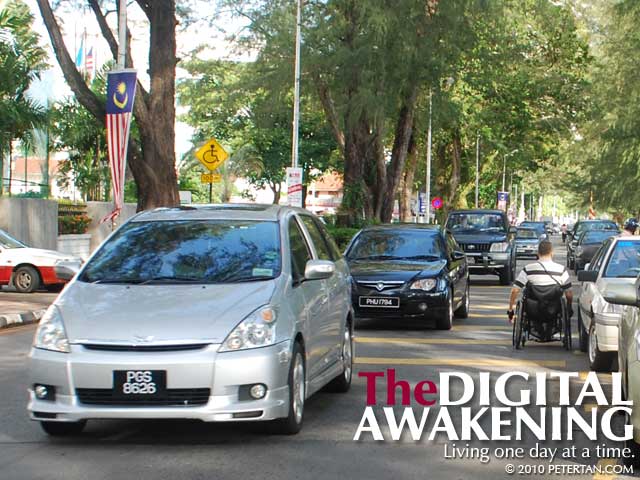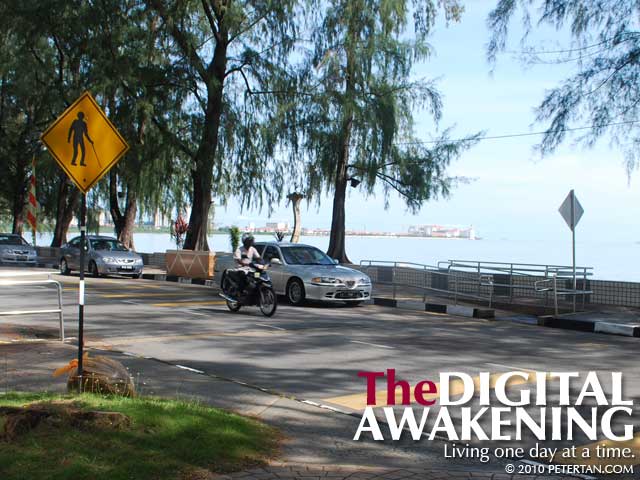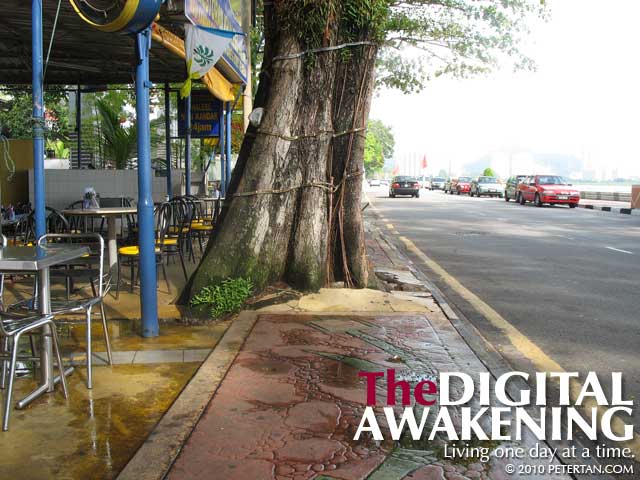
Casuarina tree outside Restoran Khaleel blocking almost the entire sidewalk at Gurney Drive.
Continuing from my previous entry regarding the lack of kerb ramps to the seafront promenade at Gurney Drive, there actually are quite a number of them across the road. The first kerb ramp is outside Evergreen Laurel Hotel where the blind man crossing sign is. However, there is no ramp to get off the sidewalk at the other end.
The subsequent kerb ramps outside the Zealand Cafe, Carnation Cafe and Song River Cafe are either poorly constructed or lead to sidewalks blocked by trees, phone booth or lamp posts. Wuan and I encountered a lamp post right in the middle of a sidewalk reminiscent of the one that we maneuvered around at Pandan Perdana and fell off the pavement and onto the road.
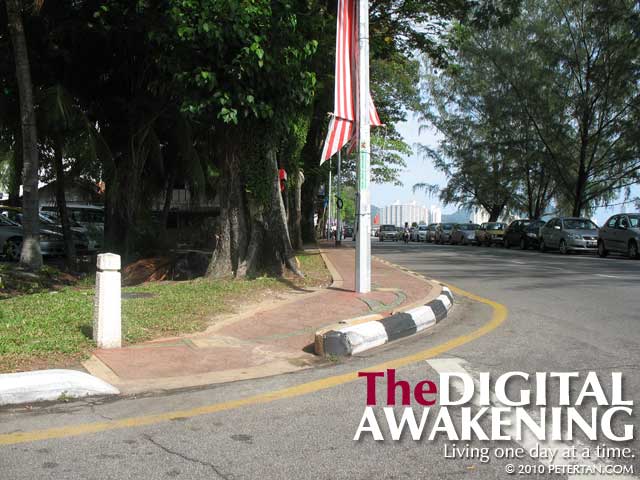
Lamp post right in the middle of sidewalk at the junction of Persiaran Gurney – Jalan Birch.
When these sidewalks are not blocked by trees or street furniture, we encountered vehicles indiscriminately parked on the driveways and blocking access to the kerb ramps. In the end, I had to go on the road, too, and face oncoming traffic passing by inches away just like what I experienced the day before.
Wuan and I had gallivanted around Gurney Drive several times before this and I wonder how we managed then. We must have had more courage back then. Or perhaps we had faith in drivers in Penang to be careful and considerate. The accessible facilities for disabled people in Gurney Drive are simply built without much thought and consideration, and are a danger not only to disabled people but non-disabled pedestrians as well.
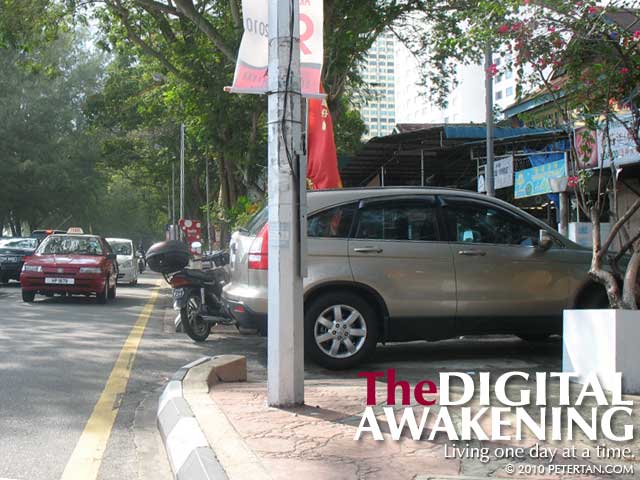
Indiscriminately parked vehicle blocking access to kerb ramp at Gurney Drive.
Like I have repeated so many times before, building a ramp does not make it wheelchair friendly, handicapped friendly or disabled friendly, whatever we choose to call these facilities. They must be safe to use and barrier free. The ones at Gurney Drive are not. They fall short of even the most basic of requirements.
The people at Majlis Perbandaran Pulau Pinang (MPPP) must take note of these matters seriously. It is a matter of life and death for disabled people when we have to go on the road to move from one point to another. It is not that difficult to make good kerb ramps and sidewalks that are barrier free. But I see the same mistakes being duplicated all over all the time.
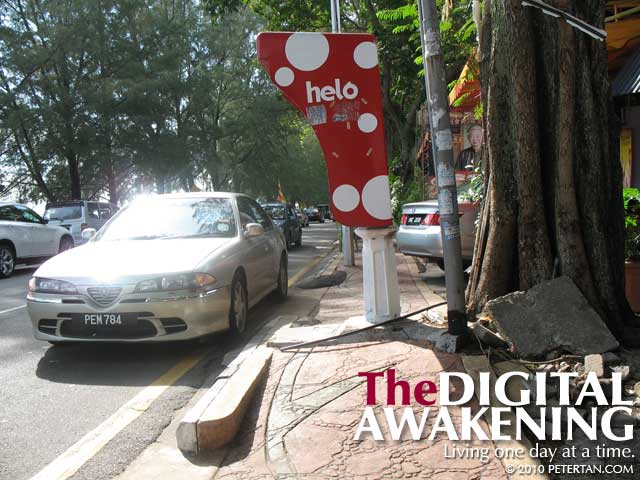
Helo? There is a phone booth blocking the sidewalk at Gurney Drive.
This issue is not unique only to Gurney Drive, or Penang for that matter. Dewan Bandaraya Kuala Lumpur (DBKL), Majlis Perbandaran Ampang Jaya (MPAJ) and Majlis Bandaraya Ipoh (MBI), to name a few, all build facilities that are mostly non-usable by disabled people despite of the availability of Malaysian Standard MS 1184: Code of Practice for Access for Disabled Persons to Buildings and Malaysian Standard MS 1331: Code of Practice for Access of Disabled Persons Outside Buildings
The engineers, architects and whoever are in charge of such infrastructure in the local governments are not doing their job properly. Two years after coming into force, the Akta Orang Kurang Upaya (Persons with Disabilities Act) rings hollow for disabled people whose right of equal access to public facilities are still being overlooked and ignored.

